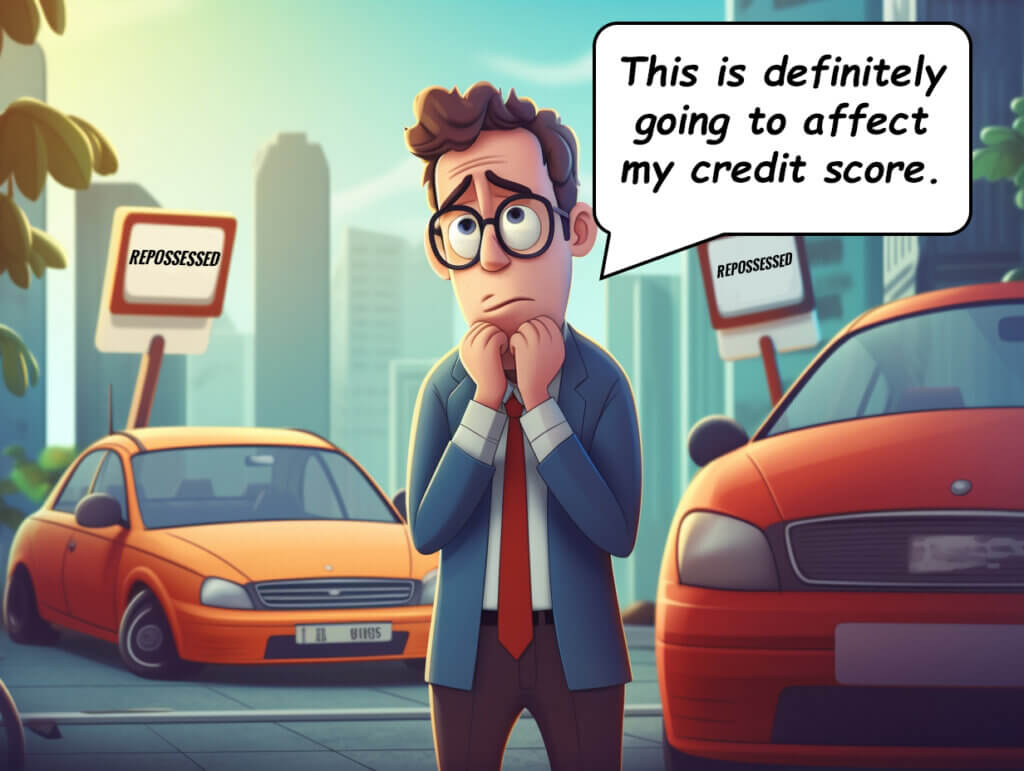- Blogs
- /
- How to Repair Credit to Buy a House in 3 Steps
How to Repair Credit to Buy a House in 3 Steps

Summary
Say you’ve finally found your dream home—the one with the white picket fence, cozy fireplace, and balcony that looks out to the vibrant neighborhood.
You can already picture yourself sipping coffee on the porch and hosting family gatherings and barbecue parties in the spacious backyard.
But there’s a catch—your credit score needs some serious tender-loving care before mortgage lenders will even consider granting you a home loan. To make matters worse, you’ve looked into how to repair credit to buy a house, but everything seems so convoluted.
But don’t worry; we’ll show you practical steps to help. So buckle up as we dive into the world of credit repair for prospective home buyers!
Key Takeaways
- Credit repair is one of the best ways to build up your credit score so you can take out a mortgage loan. And getting help from reputable credit repair services can smoothen the process of tackling complex credit issues and negotiating with creditors.
- Knowing how to repair credit to buy a house isn’t just about improving your chances of homeownership. It’s about gaining long-term financial stability so you can improve your credit and boost your credit score.
- Using a cosigner can help boost your creditworthiness and secure a mortgage for your dream home.
- Prioritizing payment of your outstanding debt, negotiating settlements, and demonstrating financial responsibility through timely payments can improve your credit score.
- Making timely payments, reducing debts, regularly checking your credit reports for inaccuracies, and keeping your old accounts open is vital to building your creditworthiness.
How to Repair Credit to Buy a House in Three Steps
If you’re looking to repair your credit and improve your chances of buying a house, these are key steps you must take:
1. Address Negative Items
Addressing every negative item on your credit report can help you repair your credit score and boost your chances of owning a home. These negative items may include late payments, collections, or even bankruptcies.
Having any of these items on your reports will significantly impact your credit score and make it harder to qualify for a mortgage.
That said, ensure you get a copy of your credit report from the three major credit bureaus—Experian, Equifax, and TransUnion. Review these reports carefully and identify any errors or inaccuracies dragging down your score.
Once you’ve identified any inaccurate negative items in your report, take action to rectify them. You can dispute incorrect information with the respective credit bureau or contact the creditor directly to resolve outstanding debts.
Also, paying off your unsettled accounts or negotiating settlements can help improve your creditworthiness and show your responsible financial behavior.
2. Build a Positive Credit History
Don’t just stop after addressing negative items on your report. Building a positive credit history is crucial for repairing your credit and increasing your chances of buying a house.
You need to establish solid payment habits by paying bills on time and consider setting up automatic payments or reminders to ensure timely payments each month.
If you don’t have much credit history, consider opening new accounts responsibly. This could include applying for a secured credit card or becoming an authorized user on someone else’s account with a good payment history.
Maintaining low balances on revolving accounts such as credit cards will also help you improve your overall credit utilization ratio—the amount of available revolving credit you’re using compared to what’s available.
3. Seek Professional Help
Repairing your credit can be complex, especially if you have multiple negative items or errors on your credit report. And if that sounds like something you’re struggling with, consider getting professional help from a reputable credit repair company.
These companies are experts in dealing with credit bureaus and creditors. They’re also great at disputing inaccurate information and negotiating settlements on your behalf.
However, carefully researching and choosing a reputable credit repair service is essential. Look for companies with positive reviews, proven track records, and transparent pricing structures. While searching, avoid any company that promises quick fixes or guarantees specific results.
Why Credit Scores are Vital in Home Loan Approval
Your credit score is a big deal when it comes to your ability to take loans and the willingness of financial institutions to give you loans. So, let’s dive into why your credit score matters so much in getting approved for a home loan.
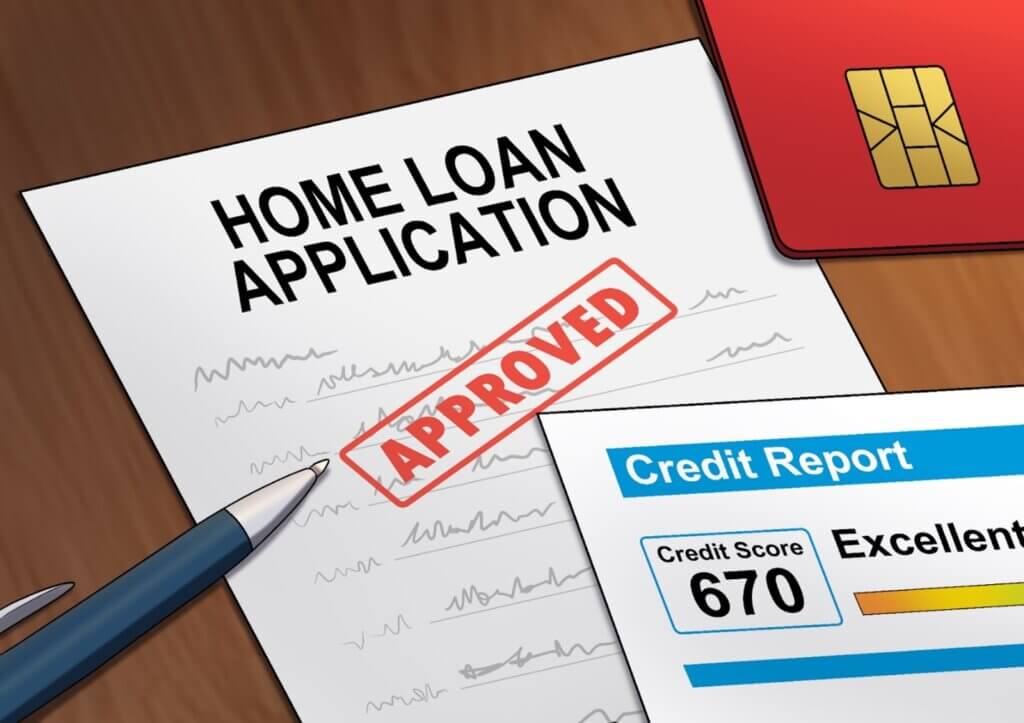
1. Crucial role in mortgage approval
When you apply for a mortgage, the lender wants to know if you can repay the loan. Your credit score gives them an idea of how likely you are to make timely payments.
A higher credit score shows lenders you’ve got a solid history of responsibly managing your debts, making lenders more confident in approving your mortgage application.
2. Assessing borrower risk
Lenders use your credit score to assess how risky it’d be to lend you money. A low credit score suggests that you may have had trouble repaying debts or have a high amount of outstanding debt.
And both of these aren’t good for you because they’d make lenders hesitant. After all, they want to minimize risk and ensure they’ll get their money back.
3. Better interest rates and loan terms
Having a higher credit score can work in your favor as lenders see borrowers with good credit scores as less risky, so they’re more willing to offer lower interest rates and better loan conditions.
Building your credit score and maintaining a higher credit score can save you thousands of dollars over the life of your mortgage.
4. Increased chances of qualifying
Improving your credit score increases your chances of qualifying for a mortgage altogether. Many lenders have specific minimum credit score requirements that borrowers must meet before being considered for approval.
Working on repairing and boosting your credit is vital to understanding how to repair credit to buy a house because it expands the pool of potential lenders who may approve your application.
How You Can Fix Your Credit Score: A Step-by-Step Guide
1. Start by Obtaining Copies of Your Credit Reports
The first step in repairing your credit score is obtaining copies of your credit reports from all three major bureaus. These bureaus include Equifax, Experian, and TransUnion.
You can request a free copy of each report once every 12 months through AnnualCreditReport.com.
2. Review Each Report Carefully and Identify Any Errors or Discrepancies
Once you have your credit reports in hand, it’s time to review them carefully. Look for any errors or discrepancies that may negatively impact your credit score. Common mistakes can include incorrect personal information, accounts that don’t belong to you, or outdated negative marks.
3. Dispute Inaccurate Information with the Respective Credit Bureau(s)
If you spot any inaccuracies on your credit reports, you must dispute them with the respective credit bureau(s). You can choose to either do this online or by mail.
No matter which option you choose, always provide detailed information about the error and any supporting documentation if necessary. The credit bureau will investigate your dispute and make corrections if they find it valid.
4. Keep Documentation and Follow-up
Maintaining thorough documentation of all disputes regarding errors on your credit report is essential. This includes copies of letters sent, emails exchanged, and other relevant communication.
Disputing inaccurate information can be exhausting, so ensure you remain patient and follow up regularly with the credit reporting agencies until they resolve the errors.
5. Develop a Plan to Pay off Outstanding Debts
One key aspect of repairing your credit is addressing outstanding debts. Create a plan to pay off these debts systematically.
Consider using the snowball method, where you start by paying off smaller debts first while making minimum payments on larger ones. As you eliminate smaller debts, you’ll gain momentum and motivation to tackle larger ones.
By following these steps diligently, you can gradually repair your credit score over time and increase your chances of buying a house.
Remember, the process may take some time, but you can achieve your goal with patience and persistence.
Four Key Strategies to Improve Your Credit Score Within Six Months
1. Pay Bills on Time and Avoid Defaults
Paying all your bills on time is crucial to repair your credit and increase your chances of owning a house. Late payments or defaults can harm your credit score. By consistently making timely payments, you show lenders you are responsible and reliable.
2. Maintain Low Balances on Revolving Accounts
Another effective strategy is maintaining low balances on revolving accounts like credit cards. It’s essential to keep your credit utilization ratio below 30%. This means you should aim to use less than 30% of each account’s available credit limit.
For example, if you have a credit card with a limit of $1,000, try not to carry a balance higher than $300.
3. Limit New Loan Applications
When trying to improve your credit score within six months, it’s essential to avoid applying for new loans or lines of credit. Each time you apply for credit, it triggers a hard inquiry on your credit report, which can temporarily lower your score.
Limiting new applications during this period minimizes the potential negative impact on your creditworthiness.
4. Focus on Paying Down High-Interest Debts
Paying down high-interest debts can significantly improve your overall credit utilization ratio and positively impact your credit score. Start by identifying debts with high interest rates and focus on paying them off as quickly as possible.
By reducing the debt you owe relative to your available credit, lenders will view you as less risky and more likely to handle additional financial obligations responsibly.
By following these strategies diligently for six months, you’ll be well-positioned to repair and improve your credit score.
Understanding the Impact of Opening and Closing Lines of Credit

Should You Open New Lines of Credit Before Homebuying?
When you apply for a new line of credit—say, a credit card or a loan—the lender will typically perform a “hard inquiry” on your credit report.
This inquiry allows them to assess your creditworthiness and decide whether they should approve your application. However, you must note that these hard inquiries can temporarily negatively impact your credit score.
Although each hard inquiry may only lower your score by a few points, multiple inquiries within a short period can quickly add up and potentially have a more significant impact.
So, always stay vigilant on how many new lines of credit you open during home-buying.
Pros
- Opening new lines of credit can provide you with additional purchasing power.
- It allows you to establish a positive payment history if managed responsibly.
Cons
- Multiple hard inquiries can temporarily lower your credit score.
- It may lead lenders to perceive you as being more reliant on debt.
Should You Close Old Accounts Before Homebuying?
Closing old accounts might seem an effective way to streamline your finances or reduce the risk of overspending.
But, consider the potential impact this action could have on your overall credit profile, specifically regarding your credit utilization ratio and average account age.
You see, your credit utilization ratio is the percentage of available credit that you’re currently using. When you close an old account, it reduces the amount of available credit at your disposal.
As a result, if you continue spending at the same rate, your overall utilization ratio increases. Lenders prefer borrowers who maintain low utilization ratios as it demonstrates responsible use of available credit.
Closing old accounts also affects another essential factor in determining your overall creditworthiness—average account age.
The length of your credit history plays a significant role in determining your credit score. When you close an old account, you shorten your average account age, potentially lowering the overall age of your credit history.
Pros
- Closing old accounts can help simplify your financial situation.
- It may reduce the risk of overspending and accumulating unnecessary debt.
Cons
- Closing accounts can increase your credit utilization ratio.
- It may shorten the average age of your credit history.
Here’s How Paying Off Debts and Collections Helps Repair Poor Credit
One of the most crucial steps is to prioritize paying off any outstanding debts, especially those sent to collections. By tackling these debts head-on, you can improve your credit score and increase your chances of getting approved for a mortgage.
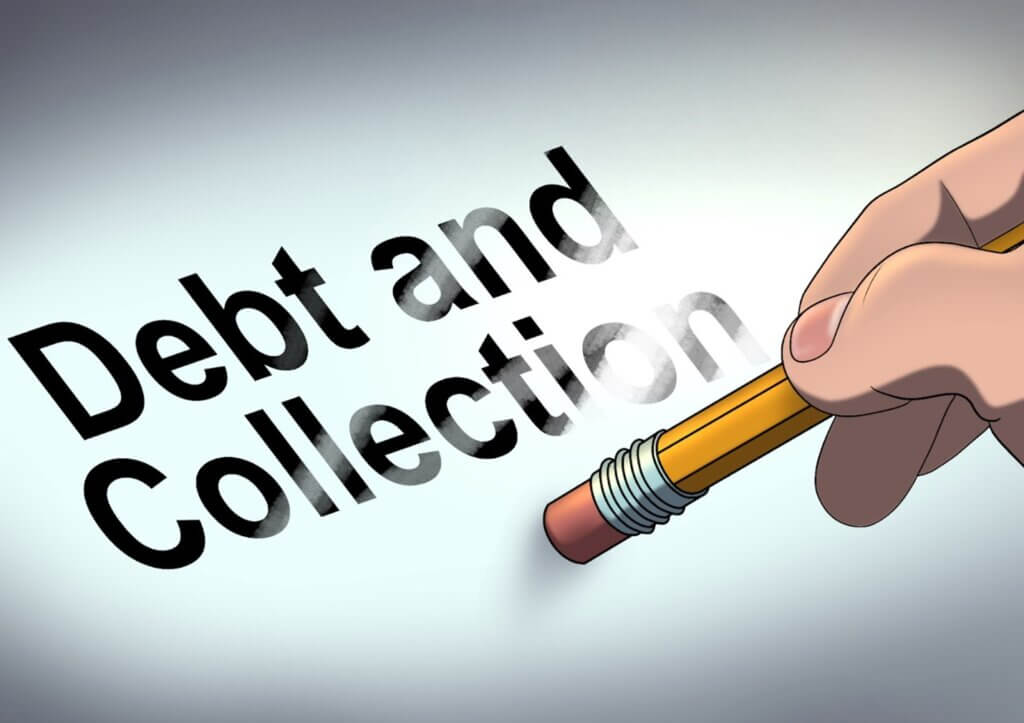
1. Start by Paying Off Outstanding Debts
Start by listing all the debts you owe, including credit card balances, student loans, and any other outstanding payments. Look closely at which debts are in collections or have been reported as late payments. These are the ones you should focus on first.
2. Negotiate Settlements or Payment Plans
If you struggle to repay your debts fully, don’t hesitate to speak with your creditors and negotiate payment plans or settlements.
Many creditors are willing to work with you if it means they’ll eventually receive their money. Be honest about your financial situation and see if they can offer flexibility.
3. Be Financially Responsible
Yes, paying off your debts reduces the amount of money you owe, but it also demonstrates your responsible financial behavior.
Lenders want to see that you can manage your debt responsibly before approving you for a mortgage. By showing that you’re actively working towards repaying what you owe, you’re signaling that you’re a reliable borrower.
4. Be Patient. Don’t Give Up
Repairing your credit takes time, so patience is a necessary part of the process. Don’t expect overnight results, as it can take several months or even years to see significant improvements.
Always stay persistent and committed to paying off your debts; over time, you’ll see a boost in your creditworthiness.
Here’s How Credit Cosigning Can Impact Your Homebuying
Many people with bad credit use good credit cosigners when buying their homes. Why? Because having someone with a strong credit history vouch for you can increase your chances of getting approved for a mortgage loan.
Here’s why this works:
1. It Increases Your Chances
A cosigner acts as an additional borrower on the loan and shares responsibility for repaying it. By having someone with good credit cosign the loan, lenders may be more willing to approve your application despite your poor credit history.
The presence of a cosigner provides reassurance to the lender that they have another person who can step in and make payments if you cannot do so.
2. Helps Offset Poor Credit History
When you have bad credit, lenders view you as more of a risk. But, having someone with good credit and a positive payment history—plus responsible financial behavior—cosign the loan can help offset your poor credit score.
Getting a cosigner gives lenders confidence that you’ll pay the mortgage on time.
3. Can Both the Cosigner’s Credit Scores
Once you secure a mortgage with a cosigner, make it your top priority to make all payments on time. Consistently making timely payments will help improve your credit score and positively impact the cosigner’s credit score.
Why? It shows that you’re financially responsible and that you and your cosigner are committed to fulfilling your obligations.
4. What to Know Before Picking a Cosigning Agreement
Before agreeing with someone to be your cosigner, it’s essential to have open and honest communication about expectations and responsibilities.
Ensure you and the cosigner understand everything regarding payment responsibilities and the potential risks involved. This way, you can both be aware of the possible consequences.

Understanding the Impact of Opening and Closing Lines of Credit

Following a budget and keeping your credit utilization low is integral to securing a mortgage.
1. Following a Budget Helps Manage Expenses Effectively
Following a budget allows you to manage your expenses effectively while prioritizing debt repayment efforts. Creating a budget allows you to track your income and expenses, ensuring you have enough money to cover your bills and make timely payments towards any outstanding debts.
Here are some benefits of following a budget:
- Prioritizing Debt Repayment:
Putting everything down in a budget allows you to allocate specific amounts toward paying off existing debts. This helps reduce the overall amount owed and demonstrates responsible financial behavior to potential lenders. - Avoiding Unnecessary Spending:
Budgeting helps you differentiate between needs and wants. By sticking to your budget, you can avoid unnecessary spending on items that don’t contribute to improving your credit or saving for a down payment on a house. - Building Savings:
Following a budget allows you to set aside money for savings. Savings provide financial security and show lenders you can handle unexpected expenses without relying solely on credit.
2. Low Credit Utilization Show Your Responsible Credit Management
Credit utilization refers to the percentage of available credit you use at any given time. Keeping this ratio low (below 30%) showcases responsible credit management and positively impacts your credit score.
Here’s why maintaining low credit utilization is vital:
- Shows You Can Handle Credit Responsibly:
When lenders assess your creditworthiness, they consider various factors, including how well you manage debt.
By keeping your credit utilization low, you demonstrate that you can responsibly handle available credit without maxing out cards or accumulating excessive debt.
- Improves Your Credit Score:
Your credit utilization ratio is a significant factor in determining your credit score. A lower ratio indicates that you are not overly reliant on credit, which can boost your score over time. - Increases Your Access to Better Loan Terms:
Maintaining a low credit utilization ratio can improve your chances of securing favorable loan terms, such as lower interest rates and higher borrowing limits. This can save you money in the long run and make homeownership more affordable.
Here’s How Credit Purchases Affects Your Homebuying
On your journey to becoming a homeowner, you must do everything you can to avoid making new purchases on credit. Instead, focus on paying off existing debts.
Refraining from using credit cards or taking out loans can help you concentrate on rebuilding your creditworthiness.
So, ensure you:
Focus on Paying Off Existing Debts
One of the most effective ways to repair your credit is by paying off existing debts. This would mean allocating extra funds towards clearing any outstanding balances or loans affecting your credit score.
As discussed earlier, doing so would help you reduce your debt-to-income ratio and demonstrate financial responsibility to potential lenders.
Temporarily Refrain From Credit Cards or Taking Out Loans
As you work towards repairing your credit, one of your goals should be refraining from using credit cards or taking out loans temporarily.
Relying on these forms of credit may hinder your progress and make achieving a good credit score harder. Instead, explore alternative payment options such as cash or debit cards until your financial situation improves.
Focus on Rebuilding Your Creditworthiness
Besides focusing on paying off existing debts and temporarily refraining from using your credit cards, you also need to pay attention to rebuilding your creditworthiness.
Avoiding new purchases on credit and focusing on paying off existing debts is one of the fastest ways to rebuild your creditworthiness. Over time, this will help improve your overall credit score and increase the likelihood of being approved for a mortgage when buying a house.
But remember that rebuilding your finances takes time and effort, but that shouldn’t distract you because it’s well worth it.
By avoiding credit purchases, paying off existing debts, and temporarily refraining from using credit cards or taking out loans, you’re on the right path to repairing your credit and achieving your goal of buying a house.
Extra Tips for Improving Your Credit Score
Here are some extra tips that’d help you improve.
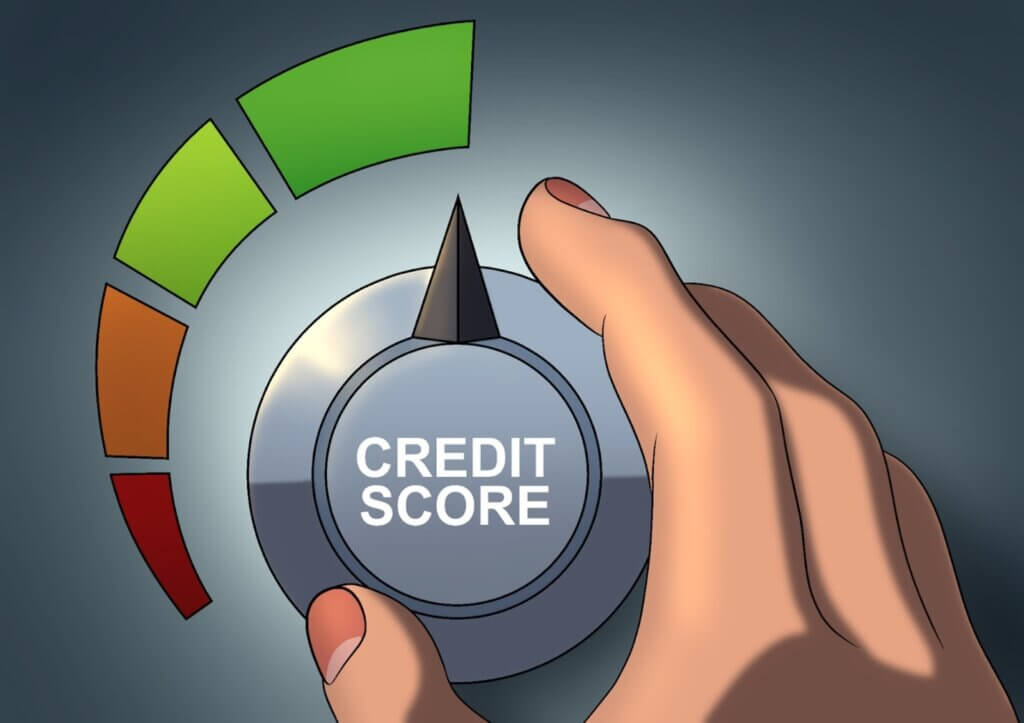
1. Regularly Monitor Your Credit Reports
It’s crucial to monitor your credit reports regularly. Doing so would help you catch errors or fraudulent activity early on and take the necessary steps to rectify them.
So, keep an eye out for any discrepancies in your credit history, like incorrect payment information or accounts that don’t belong to you.
2. Consider Getting Help From a Reputable Credit Repair Service
If credit repair becomes too challenging and exhausting, consider getting help from a reputable credit repair service. Credit repair experts are great at spotting every error on your credit report and disputing them.
A reliable credit repair company will regularly update your credit scores and help you identify areas where improvement is needed.
3. Improving Your Credit Score Takes Time and Consistent Effort
Repairing your credit score is not an overnight process—it takes time and consistent effort. So, you must be patient with yourself as you work towards improving your financial standing.
Remember that building healthy credit is a marathon, not a sprint. Focus on making timely payments, reducing debt, and maintaining sound financial habits over time.
4. Stay Updated on Finance and Responsible Borrowing Practices
One of the keys to repairing your credit score is having a solid understanding of personal finance and responsible borrowing practices. Take the time to educate yourself about how credit scores work, what factors influence them, and how you can make positive changes.
Learn about budgeting techniques, debt management strategies, and ways to improve your financial literacy. By arming yourself with knowledge, you’ll be better equipped to make informed decisions.
The First Path to Achieving Homeownership
Now that you’ve taken the first step and understood how to repair credit to buy a house, you’re well on your way to improving your credit score and increasing your chances of getting approved for a home loan.
Remember, repairing credit takes time and effort, but you can progress with persistence and dedication.
So, always watch your credit report closely, correct errors promptly, pay off debts and collections, and follow a budget to keep your credit utilization low.
Also, consider seeking the help of a cosigner if you have bad credit or explore alternative loan options available to you.
Remember that repairing your credit is not just about buying a house; it’s about taking control of your financial future.
Improved credit brings better loan opportunities, lower interest rates, and more financial freedom. So don’t give up—keep working towards repairing your credit and achieving your financial goals.
FAQs
How long does it take to repair my credit?
The time it takes to repair your credit depends on various factors, like the extent of damage, the accuracy of the information on your report, and how diligently you follow the recommended steps.
Although you can see some improvements within months, significant changes may take up to a year or longer.
Can I repair my credit without professional help?
Yes! You can repair your credit without professional assistance by following the step-by-step guide provided in this blog post. It requires patience, discipline, and consistent effort on your part.
Will paying off all my debts instantly improve my credit score?
Paying off outstanding debts is necessary for improving your credit score; however, it may not lead to an instant boost in your score. And that’s because it takes time for the credit bureaus to update your information, so be patient and continue practicing good credit habits.
Can I get a mortgage with bad credit?
The short answer is yes. However, obtaining a mortgage with bad credit could be more challenging and come with higher interest rates.
Should I close my unused credit accounts?
Closing unused credit accounts may seem like a good idea, but it can harm your credit score. It’s better to keep them open and use them responsibly, as having a more extended credit history can positively impact your score.

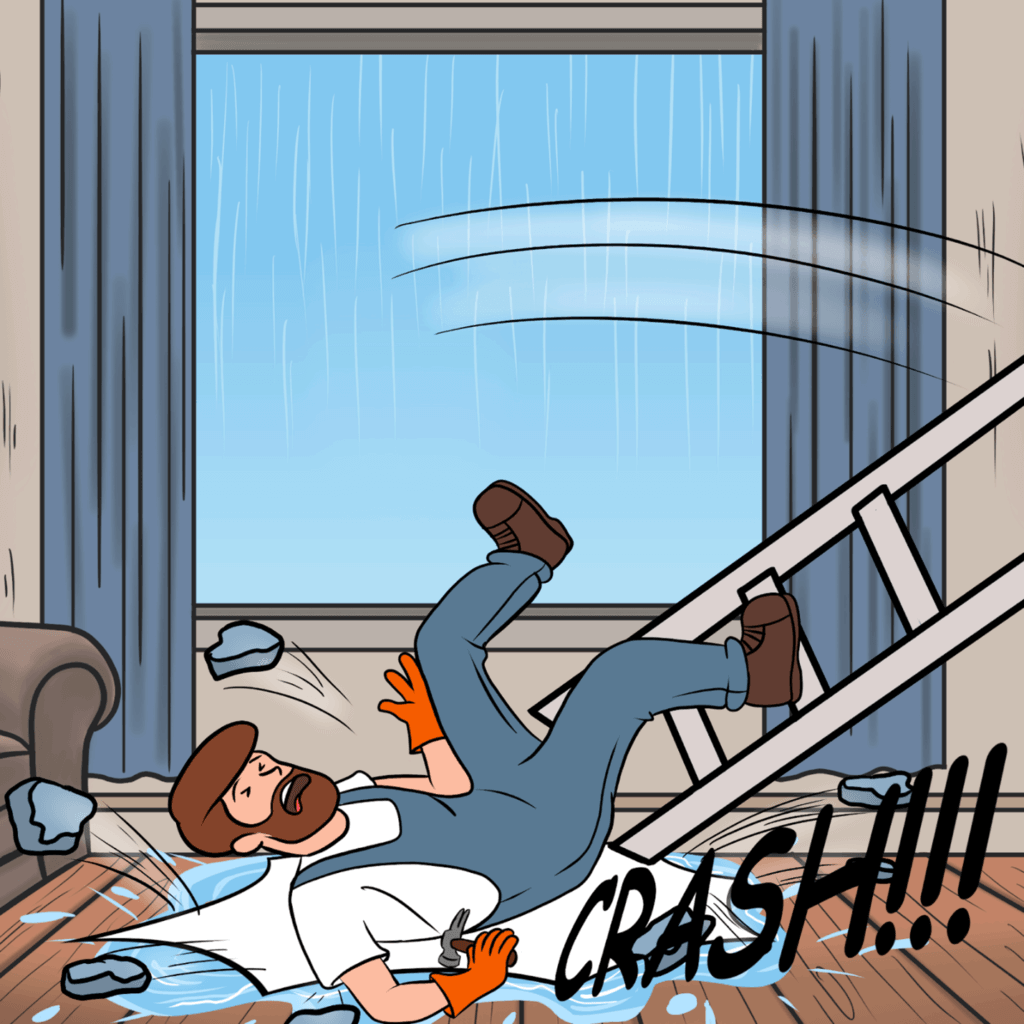







Our Latest Blogs:

ThisIsJohnWilliams
FREE Strategy Session to Fix Your Credit Blogs / Facebook Twitter Linkedin Instagram Share Summary For most people, rent...

ThisIsJohnWilliams

ThisIsJohnWilliams
FREE Strategy Session to Fix Your Credit Blogs / Dealing with financial difficulties is overwhelming. But when faced with...

ThisIsJohnWilliams
FREE Strategy Session to Fix Your Credit Blogs / Facebook Twitter Linkedin Instagram Share Summary Have you ever gone...

ThisIsJohnWilliams





